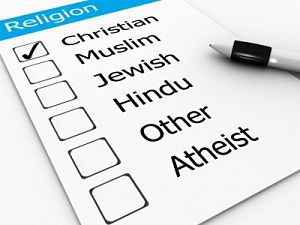Who's the God of All of Us?
- விவரங்கள்
- பிரிவு: Why the Bible?

1) Whom should mankind believe to be its God and Creator?
Less than a third of mankind is classified Christian today. Islam is the fastest growing world religion. There are a billion Hindus who worship thousands of gods. Men follow a whole array of other religions as well. Atheist groups deny the existence of any God at all. So, who of all these is right?
2) How is a religion defined? How does a follower of a faith learn about his or her God(s)?
Every religion has its ‘sacred book’ describing its God(s) and a system of faith for the believer to help understand its God(s). Jews have the Jewish Bible, Christians have the Bible (that includes the Jewish Bible as the Old Testament), Muslims the Koran, Hindus the Vedas and so on.
3) Is the God of the Bible unique in any way?
The God of the Bible is quite exclusive. He declares in the Bible -
‘I am the first and I am the last, and there is no God besides Me’ (Isaiah 44:6).
In fact, this God challenges all the other claims to divinity. He deems all other ‘gods’ as mere figments of people’s imagination and idolized products of men’s creativity (Isaiah 43:9-12, 44:11-20), and declares himself the one true God of all mankind.
4) How do we know if this bold declaration is right?
Let us apply certain tests to the Bible and see if it holds up. The two main tests would be –
-
Science of the Universe
- Does the Bible hold up to the discoveries of modern science?
- If the God of the Bible is really the Creator of the Universe, then His book should actually be ahead of scientific discoveries, shouldn’t it?
-
History of Mankind
- Has the Bible predicted the course of mankind’s history ahead of time?
- If a sacred text has accurately forecast the events of history, then it sure makes a case for being the book of the One in-charge – the God who controls Man’s destiny.
In the Bible, 'Come now, and let us reason together, says the LORD' (Isaiah 1:18). A very engaging God that openly invites the reader to reasoning! Let’s accept that invite and start reasoning. It could help us find an answer to mankind’s ultimate question.
